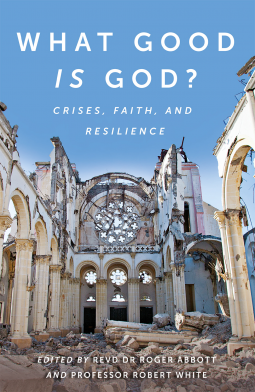
What Good is God?
Crises, faith, and resilience
by Roger Abbott; Robert White
This title was previously available on NetGalley and is now archived.
Send NetGalley books directly to your Kindle or Kindle app
1
To read on a Kindle or Kindle app, please add kindle@netgalley.com as an approved email address to receive files in your Amazon account. Click here for step-by-step instructions.
2
Also find your Kindle email address within your Amazon account, and enter it here.
Pub Date Nov 20 2020 | Archive Date Jan 05 2021
Lion Hudson Ltd | Monarch Books
Talking about this book? Use #WhatGoodisGod #NetGalley. More hashtag tips!
Description
Advance Praise
'If you read, learn, and inwardly digest both the science and the faith in this book, which earths the theology of suffering in the raw experiences of those who have suffered, then your faith will be more intelligent, your empathy more compassionate and your commitment to act more justly will be more determined.' - The Right Reverend James Jones, KBE, formerly Bishop of Liverpool and Chair of the Independent Hillsborough Panel
'Twenty-four hour news coverage constantly reminds us of the prevalence of disasters across the world and within our own communities. How are we to understand the presence of God in the midst of such disasters? In this book, Roger Abbott and Robert White bring together a series of essays that each seek not only to help us to understand disasters theologically, but also how we can build communities of resilience and hope that can change the world.' - Revd Professor John Swinton, Professor in Practical Theology and Pastoral Care, School of Divinity, History and Philosophy, King’s College University of Aberdeen
Available Editions
| EDITION | Other Format |
| ISBN | 9780857219657 |
| PRICE | $14.99 (USD) |
| PAGES | 272 |
Featured Reviews
There is nothing new about humans pondering the dilemma of how can we trust in a beneficent God in the face of natural disasters, and their attendant death, destruction and misery.. This well written book has arisen out of a workshop run by The Faraday Institute For Science and Religion in 2014, and represents the work not just of academics in the field, but also victims and survivors themselves.
it is a powerful book , and one of the most moving chapters comes with an exploration of the experiences of the family of a young woman murdered in the Lockerbie tragedy, and how they rely on their Christian faith to make sense of their devastating loss.
There is nothing trite about the messages here. The authors present unequivocal evidence that disasters, natural or otherwise, always have a disproportionate effect on the poor, and the already marginalised. Equally the most life threatening aspects of climate change impact disproportionately on poorer societies despite having their roots in the actions of the wealthy.
The book most powerfully argues for an alliance of faith and science as a way forward , and its message is ultimately of hope and confidence.
Fascinating and insightful.



